I live on Barbados, the beautiful, tropical island that lies farthest East of the chain of over 7000 islands called the Caribbean.
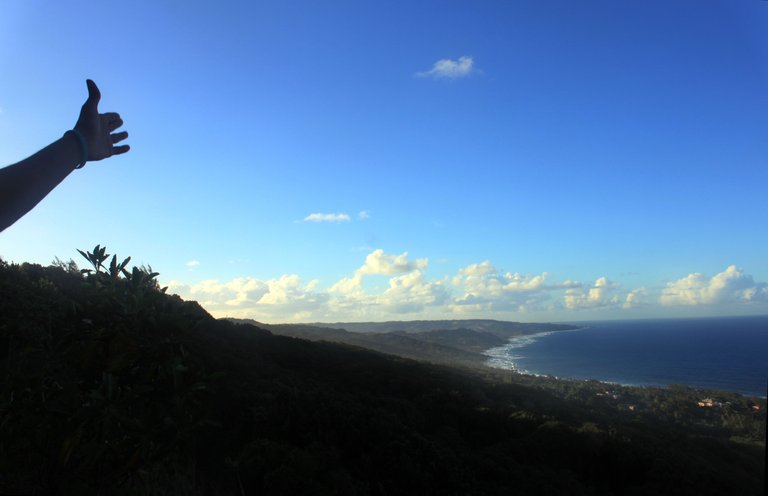
The region used to be called "The West Indies" during colonial rule and traces of this influence can still be found in popular sports like cricket and in our education system, legal jargon and political structures.
This is particularly true of the 144 sq. miles of Barbados which in certain circles is still affectionately called "Little England".
We play "for the West Indies" and have several campuses on different islands known collectively as "The University of the West Indies". We spell words the English way and even though we gained national independence in 1966, our head of state is still the Queen of England. Barbados is home to the oldest Parliament in the Western world and had a statue of Lord Admiral Nelson before London did. He won a battle over the French and "saved" us.
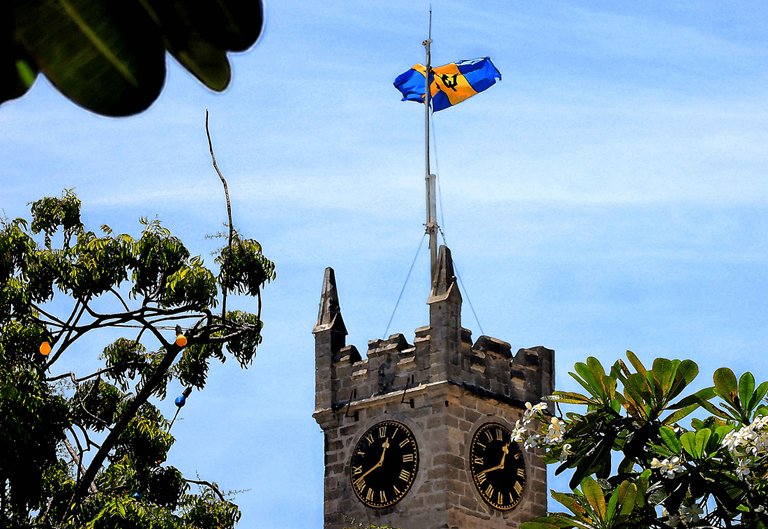
The island was only ever "governed" by the British and never changed hands like all of our neighbours did from time to time. We had a little war once when the local governor, Lord Willoughby, sided with the British crown, namely Charles 1, when Cromwell overthrew the monarchy. Cromwell promptly sent a contingent of ships to Barbados and bombarded the towns of Speightstown and Oistins from the sea. Willoughby promptly surrendered and our Constitution was crafted under the terms of surrender. Barbados was considered one of Britain's' most valuable colonies.
Among the general population though, the pet name for our home is "Bimshire", almost always shortened to "Bim". Our local dialect contains many archaic English words in an accent that harks back to strong Scottish and Irish influences.
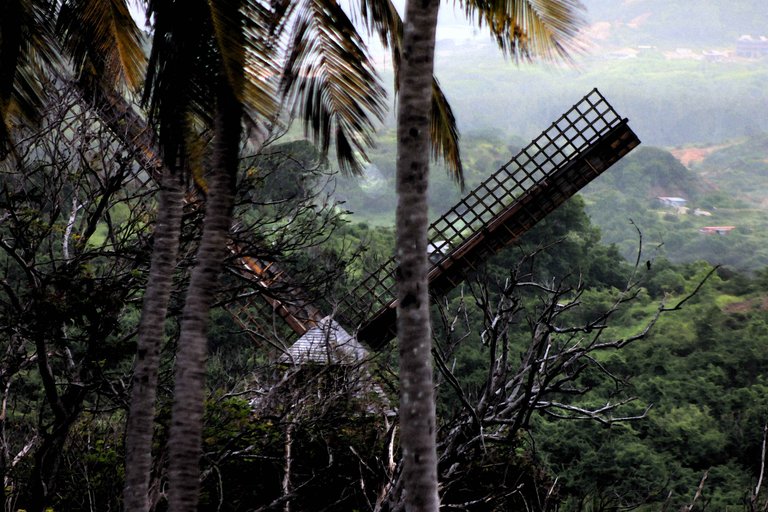
Barbados is also called "The Gem of the Caribbean", as it hangs off to the East at the edge of the Atlantic, like a pendant from the chain of other precious jewels that make up this extraordinary archipelago. In spite of a few social and economic difficulties the region is still considered a zone of peace.
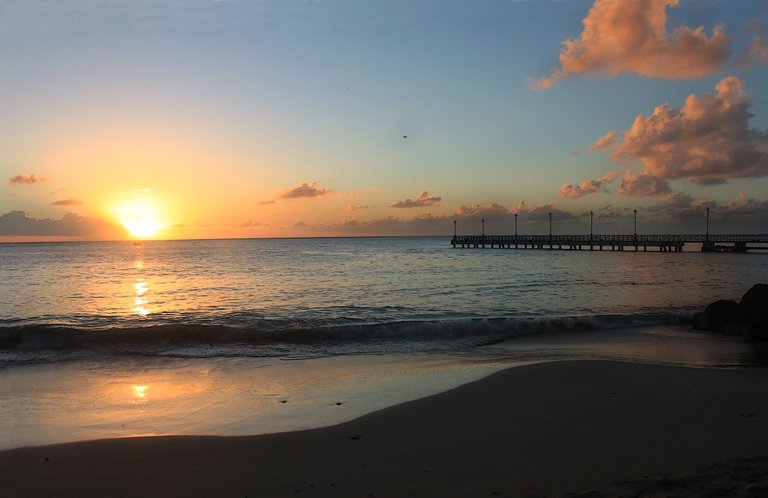
The name "Caribbean" comes of course from the much maligned and so-called "Carib Indians" who were just one of the many indigenous tribes living successfully in the entire continental basin and who were active traders up and down the island chain. They were far more aggressive and resistant to the colonial invaders and so had their histories and character distorted to portray them as the bad guys.
They were not cannibals as is commonly taught. That was just a part of the smear campaign against them in order to justify the massacre of an entire population.
In fact, the name they called themselves was "Kalinago' which somehow got slurred down into "Caribee" and then "Carib".
They were the last men standing after the conquest of the region.
.jpg)
If you know anything of our history you will know that after a very friendly welcome by the tribes he contacted, Christopher Columbus returned to the islands with a Spanish Crown sponsored armada and proceeded to torture and massacre the first nations, all in search of gold.
Within 50 years of contact, and certainly by the middle of the 17th century, the tribes had all been completely decimated, but a few made it to safety by hiding the depths of the jungles of Dominica, Hispaniola and Jamaica where Taino/Carib settlements still exist today. Their languages and traditions are slowly making a comeback.
On Barbados all the Taino were either captured and killed, or managed to escape to one or more of the more rugged islands leaving behind a rich store of tools made from conch shell and carved and sculpted utensils made from local red clay.
I have a few beautiful pieces that I have found over the years, including a hand chisel made of Obsidian: a dense, glass-like material of volcanic origin that would have originally been an object of trade.
The island also has layers of white Kaolin which is used in a small pottery industry located in the Scotland District.
This entire area is made up of loose, unstable soils, sand dunes and extensive clay deposits. This part of the island on the East Coast is almost an anomaly in that it is completely different geologically from the rest of the island.
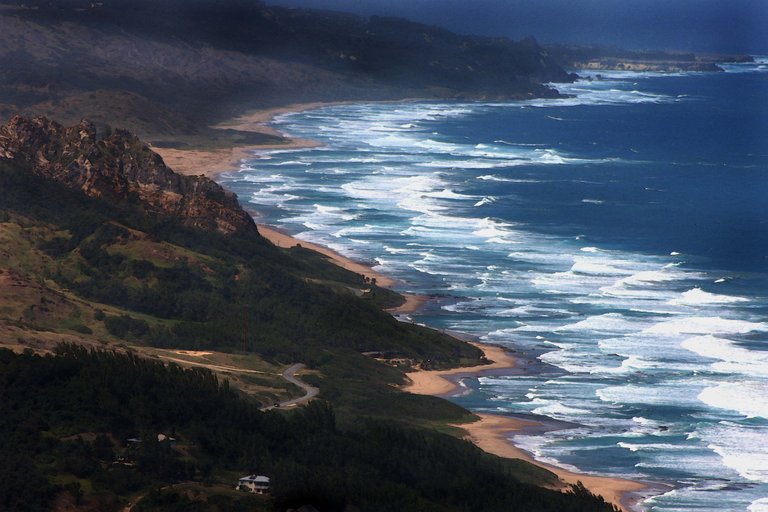
Barbados is very different geologically from the other major islands in the Caribbean Chain.
For one thing, it has no volcanic activity like many of the others, and is primarily made of vast shelves of coral which at one time were formed under the ocean. The island was once divided into two by a narrow inlet of the ocean that ran East to West through what is now the food basket of the country: the St. George Valley. There are certain features that indicate the effects of a gigantic Tsunami at one point in our history.
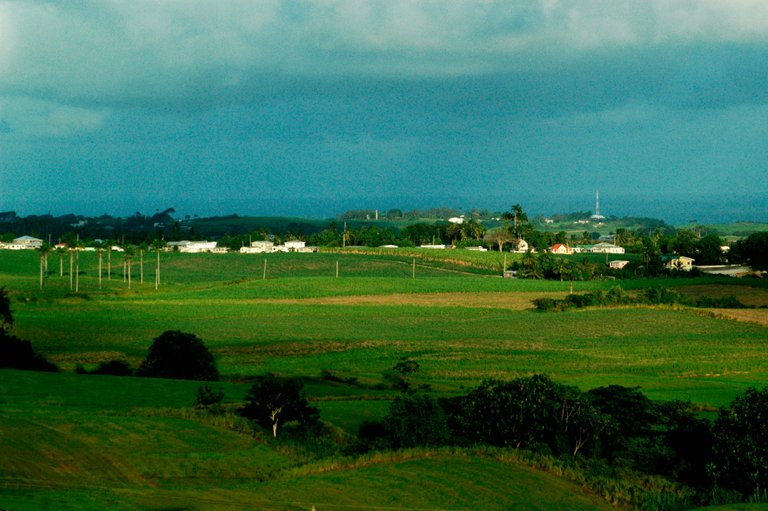
The island is literally a series of slabs of calcium carbonate/limestone that have been successively pushed skywards, managing a top height of 1,115 ft. or 343 metres above sea level.
We have beautiful rolling hills and some pretty spectacular seaside cliffs along with our well known pink and white sand beaches.
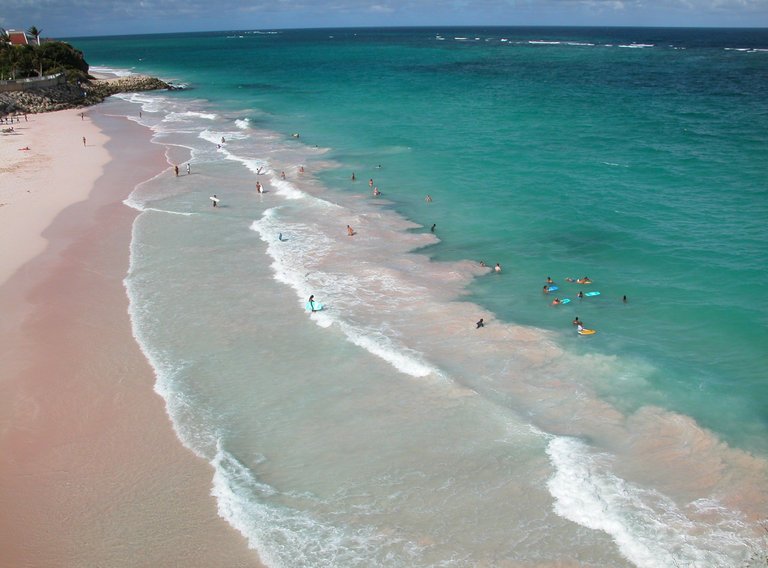
Another amazing feature of the landscape is the extensive cave system that runs through the island.
The heart of the island is actually crystalline, formed through millennia by the purest water dripping through the spaces in the coral. The water we use comes from a natural aquifer that lies beneath the island. It once had the reputation of being the best quality water in the Caribbean.
Some of these caves have now been turned into tourist attractions, but as a boy, I would go with a gang of friends, armed with what we called "Smut Lamps", exactly like a Molotov Cocktail, a bottle filled with Kerosene, but with a tidy wick, to light our way through the winding, underground passageways.
We would explore the caverns as far in as we dared, scaring ourselves far more than the clouds of bats we would inevitably disturb with our nervous chatter and the flames of our lamps dancing the shadows into monsters.
The entrances to these cave systems are quite easy to access and were used as hiding places from time to time throughout the history of the island by people who threatened the status quo.
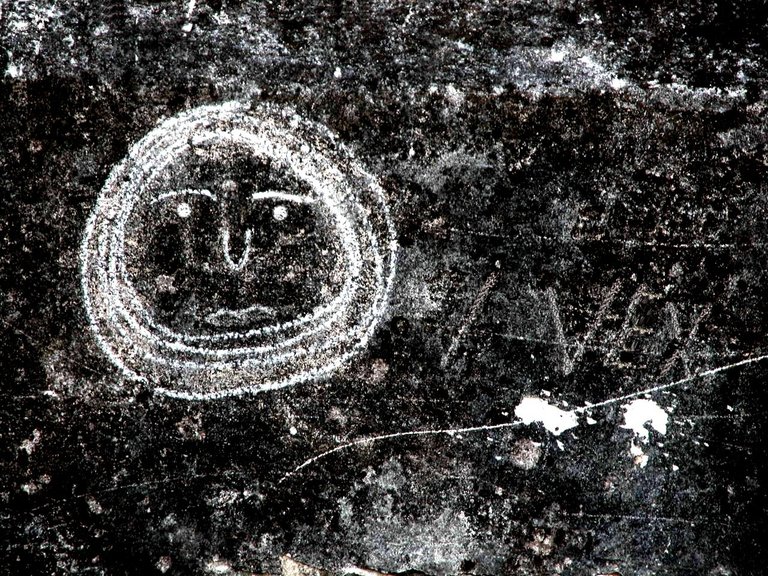
I live in an agricultural area called "Edgecliff", aptly named, for about 200 yards from my front door, the coral plate of the highest terrace of land on the island falls away towards the East coast. The panoramic view looks out over the Atlantic Ocean, which of course spreads out as far as the eye can see and you can see most of the entire coastline stretching North and South.
The view is quite extraordinary and the area is very safe for sitting in contemplation. The next land to the East is Africa.
The local army sometimes does training sessions and maneuvers in the virgin forest at the base of the cliff, but not very often.
There is a sort of secret place I know where you can climb down through a fissure in the rock and come out in these quiet woods under the tree canopy that can be 60 feet overhead.
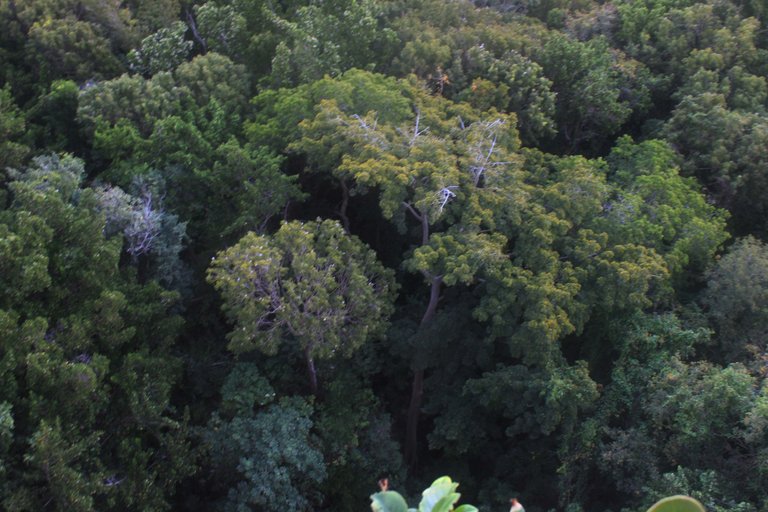
The entire cliff is named after a British soldier, Captain Hackleton, who committed suicide by riding his horse at full gallop over the edge. It is more than 100 feet straight down.
He did it because of unrequited love from a local lady of his dreams.
I think I feel more sorry for his horse.
I live on a farm...but more about that another time.
Cheers!
Derek.
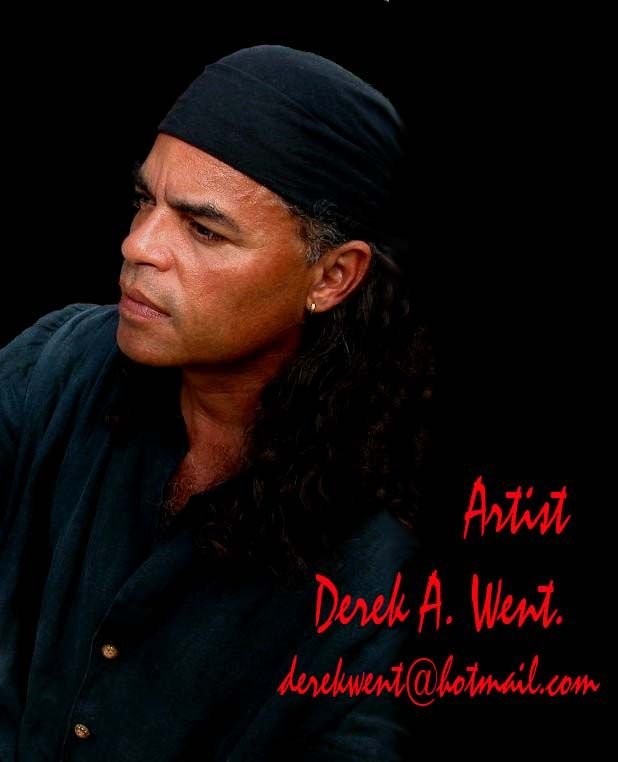
Congratulations @derekwent! You have completed some achievement on Steemit and have been rewarded with new badge(s) :
Click on any badge to view your own Board of Honor on SteemitBoard.
For more information about SteemitBoard, click here
If you no longer want to receive notifications, reply to this comment with the word
STOP